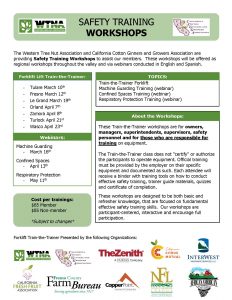
January 22, 2026
To: U.S. Cotton Industry Members
From: Gary Adams, President & CEO
Re: Additional Economic Assistance
On behalf of the National Cotton Council, the U.S. Peanut Federation, and USA Rice, we are issuing the following joint update and action alert on the state of play regarding additional economic assistance.
This week, the U.S. House of Representatives is considering the final four FY 2026 appropriations bills, which, in their current form, do not include additional agricultural assistance. The package would still need to pass the Senate before making its way to the President’s desk for signature before the current continuing resolution expires on January 30.
While the political prospects for additional economic assistance are unclear, it is essential that lawmakers continue to hear from producers about the ongoing economic crisis and reiterate the need to build on USDA’s Farmer Bridge Assistance (FBA) Program. Even if you know that your Member of Congress supports additional economic assistance, we urge you to contact them immediately and 1) thank them for supporting those efforts—like the Boozman/Hoeven expanded farm assistance framework—and for securing the Title I improvements to the farm safety net included in the One Big Beautiful Bill Act, 2) share personal anecdotes that convey the urgency for additional economic assistance, and 3) reiterate the need that Congressional leadership needs to help deliver bankable and timely assistance as soon as possible to help stabilize the farm economy.
On January 21, the American Farm Bureau Federation published a Market Intel report, “Farmers Continue to Face Losses Despite Aid,” which noted that per-acre production costs are projected to rise again in 2026, operating costs remain well above pre-2021 levels, and farmers will continue to operate below breakeven prices for yet another year. The report notes that even with ECAP and FBA payments, the net losses for cotton, peanuts, and rice are -$202, -$131, and -$210, respectively. The full report can be found here, and notes that accumulated losses over the past three crop years exceed $50 billion across the ag sector. Last week, our organizations also joined AFBF in a broad stakeholder letter, which noted “Even after including crop insurance, farm bill programs, support from the FBA program, the 2024 Emergency Commodity Assistance Program and the Marketing Assistance for Specialty Crops Program, losses for principal crops and specialty crops remain deep. This is why Congress needs to act.”
We are not asking lawmakers to oppose the appropriations package if assistance is not included, but rather to encourage them to remain engaged in the process and secure commitments from leadership to ensure that a package to expand coverage for the FBA program is considered in the near future, to allow bankable, timely assistance.


